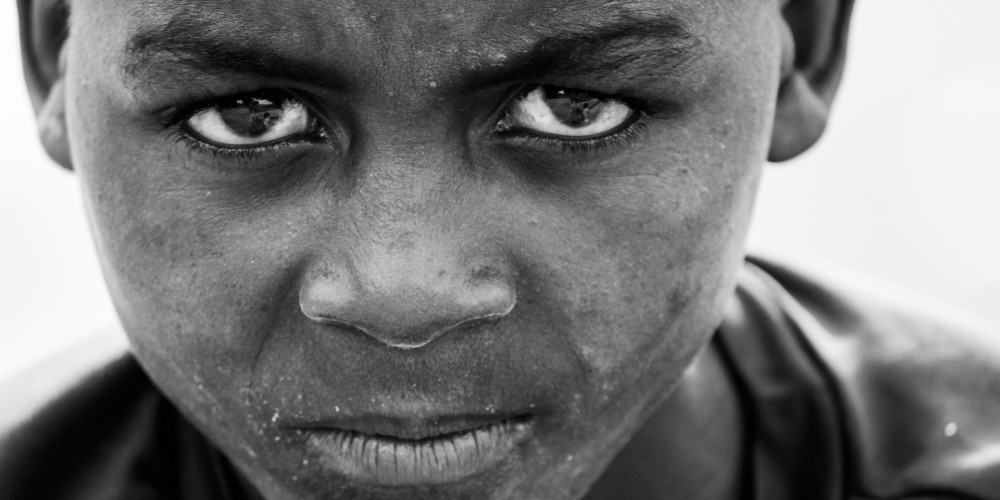Societal failure looks like this

It’s an interesting photograph. In the middle there is a sparkling new Rolls Royce parked in a city street; clearly, the owner is doing very well. But wait, to the left there seems to be an open drain running alongside the glittering car. And to the right of the limousine a very young child is carrying something, probably for sale, on its head. We also notice that the man standing proudly by the door of the car is apparently a man of God, with a gleaming crucifix on his chest.
That photograph went viral recently. I first came across it on the Twitter feed of Olufemi Awoyemi, a Nigerian analyst and commentator. Why did this photo attract so much attention?
Because this is what societal failure looks like. Mr Awoyemi depicted the photo, apparently taken in his country, as “Nigeria illustrated.” It could just as easily apply to Kenya, or India, or any number of emerging economies that flail around in the throes of an illusory development.
Let’s start with the drain. Why should any country still have open drains? That is a primitive arrangement we should all have consigned to our pasts. This kind of rudimentary drainage is ineffective and unhygienic and causes disease. Why do we still have something like this? No, not because we can’t afford any better, but because our leaders choose not to do something better for their people. They find seemingly better uses for public money. Like ostentatious celebrations, or lavish hospitality and travel budgets.
Let’s move on to the child. That child is learning entrepreneurship via the school of hard knocks, right? So this is a good thing, no? No. When young children litter the streets trying to sell peanuts and bananas just to eke out a miserable living, that is not a sign of progress. It is a painful indictment of society. These are not the future businessfolk of society; they are the future beggars and gangsters, or the innocent victims of street crime. Again, society has chosen to leave them on the streets rather than give them a meaningful education.
Finally, back to the middle section of the photograph. So an enterprising African can afford the best car that Britain can offer? What’s not to like? It’s a free market and we should all applaud individual enterprise, should we not? But wait: most people who purport to be messengers of God while flaunting obscene wealth are no entrepreneurs; they are usually conmen, pure and simple. They are preying, not praying; preying on the hopes and fears of the ignorant. Selling a false promise while play-acting the role of a divine emissary.
How else to to explain the fact that these folks often have large security details (God’s protection is evidently insufficient); or that they wear more bling than rappers (the humility of the real prophets is evidently no example); or that they milk their congregations for obscene contributions to their personal wealth? And their unlettered, unthinking followers lap it all up.
These are all signs of failure at societal level, not success. Accomplished societies do not deprive their most needy people of the most needed basics: health, hygiene and education. They pay for those things first, not last. They allow their people to have their eyes and minds opened by education, so that they can make discerning choices and know proper leaders from knaves and charlatans. And they do not allow conmen to flourish; they fling those who leech off the poor in jail.
That is the problem with collective failure; it often has images of flashy cars and glamorous skyscrapers, and looks like success. But individual lucre is not communal gain. And the problem with the fortunes made in immature economies is that way too many of them are made from patronage, cronyism and outright fraud. There’s nothing to clap for there.
A society that wants to advance quickly allows the market to work properly, by giving opportunity and freedom to as many as possible. It builds proper institutions to protect rights and property. It outlaws villainy and punishes chicanery. Then, those who deserve to succeed – the industrious, the innovative, the generous – get a genuine chance to do so and take their people with them rather than retarding them.
If we keep clapping for ill-gotten gains and keep looking away from the essentials of development, all our countries will keep emerging and never arriving.
(Sunday Nation, 18 December 2016)

Buy Sunny Bindra's new book
The X in CX
here »
Popular Posts
- Snakes and Ladders, AKA your lifeJanuary 25, 2026
- Make this your year of being boringJanuary 4, 2026
- The man who passed by one markJanuary 18, 2026
- How things fall apartFebruary 8, 2026
- Pretty isn’t the productFebruary 1, 2026















